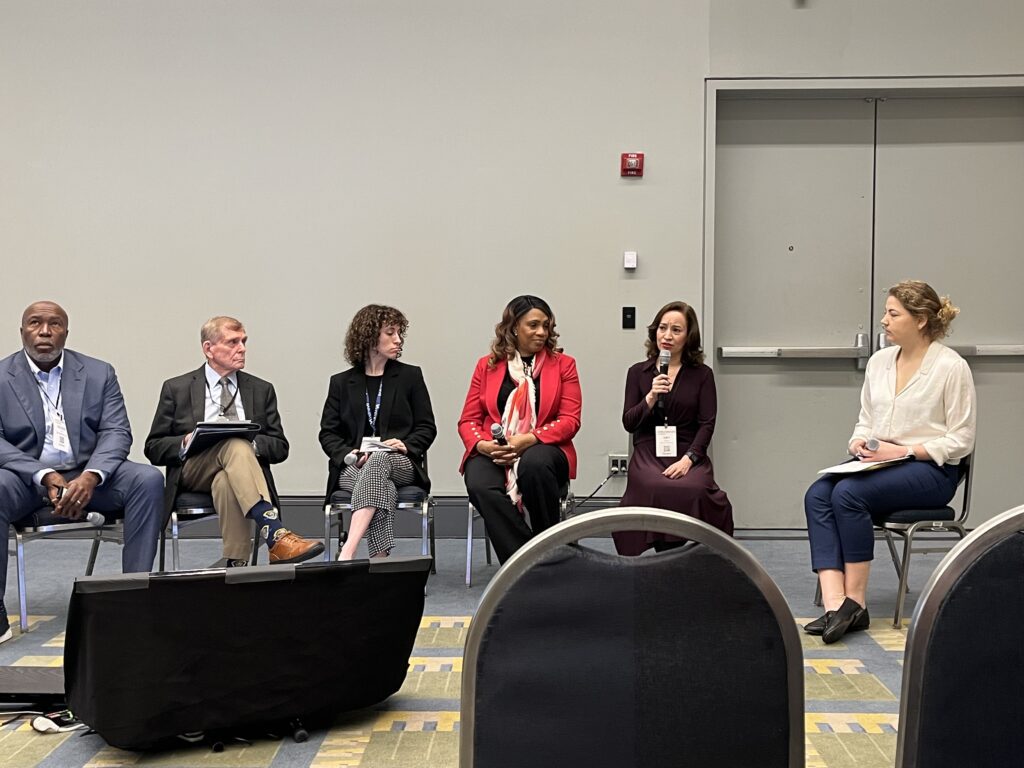April began with the 2024 World Vaccine Congress in Washington, D.C., where Biotechnology Innovation Organization (BIO) leaders and members highlighted developments in life-saving vaccine technology.
Billed “the most important vaccine event of the year,” the annual World Vaccine Congress brings together more than 4,000 attendees from science, government, public health, and manufacturers around the world to discuss progress in the vaccine value chain and celebrate innovations that, according to the World Health Organization (WHO), “have saved more human lives than any other medical invention in history.”
BIO vaccine experts joined several panels throughout the week to discuss key topics in vaccine policy and messaging strategy.
BIO discusses adult immunization, ACIP

Phyllis Arthur, BIO’s Senior Vice President of Infectious Diseases and Emerging Science Policy, joined two panels at the World Vaccine Congress 2024. One panel focused on adult vaccination, while another explored the evolving role of the Advisory Committee on Immunization Practices (ACIP), which develops recommendations on how the U.S. should use vaccines and immunizations.
As Bio.News previously reported, by 2030, there will be 1.4 billion people over 60. And increasing vaccination is particularly important for maintaining public health.
We had a lot of success with adult vaccination and COVID-19, Arthur previously told Bio.News. “But we really need to build that into better infrastructure for all the vaccines,” including vaccination programs for uninsured adults.
It’s important to continue to vaccinate the pediatric and senior populations, “but we can actually make a. healthier American adult if we start” routine adult immunization around 50 years old, she explained.
The importance of messaging about vaccines
Emily Acker, Director of Infectious Disease Policy at BIO, also participated in a panel discussion about strategies for successful vaccine messaging.
As BIO has long explained, the key to building vaccine confidence is communication by trusted messengers, such as healthcare providers or community or religious leaders. This is especially true in populations with historic mistrust in vaccines and the vaccine development process, particularly the Black and African American community, as Reggie Ware of BlackDoctor.org previously told Bio.News.

World Vaccine Congress 2024 recognizes BIO member innovations
During the 2024 World Vaccine Congress, a number of BIO member companies were recognized for their vaccine achievements. These include:
- GSK was named “Best Pharma Company.” GSK developed one of the first adult vaccines for respiratory syncytial virus (RSV) and has long been an advocate for adult vaccination.
- Valneva’s chikungunya vaccine won “Best Prophylactic Vaccine.” Approved in 2023, it’s the first vaccine to prevent chikungunya, a mosquito-borne disease that can be fatal. The vaccine is critically important as chikungunya is spreading to new locations due to changing climate conditions.
- Merck and Moderna’s INT vaccine for cancer won “Best Therapeutic Vaccine.” In December 2023, the companies announced Moderna’s individualized neoantigen therapy (INT), mRNA-4157 (V940), in combination with Merck’s therapy KEYTRUDA, reduced the risk of recurrence or death from melanoma in high-risk patients by 49%.
Featured image: BIO’s Surea Gainey at the BIO booth at the World Vaccine Congress 2024 in Washington, DC. (Credit: Biotechnology Innovation Organization)




